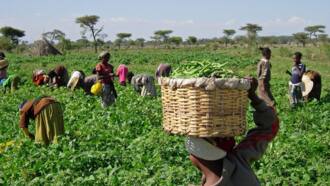Top 20 richest states in Nigeria in 2022: What are their current GDPs?
Nigeria is remarkably endowed with minerals, fertile agricultural lands, and huge oil and natural gas deposits. The country is sub-divided into36 states and one federal capital territory, with each state being a semi-autonomous political unit that shares powers with the Federal Government. The states vary in size, population, and wealth. Which are the richest states in Nigeria, what are their GDPs, and their main economic activities?
PAY ATTENTION: Click “See First” under the “Following” tab to see Legit.ng News on your Facebook News Feed!
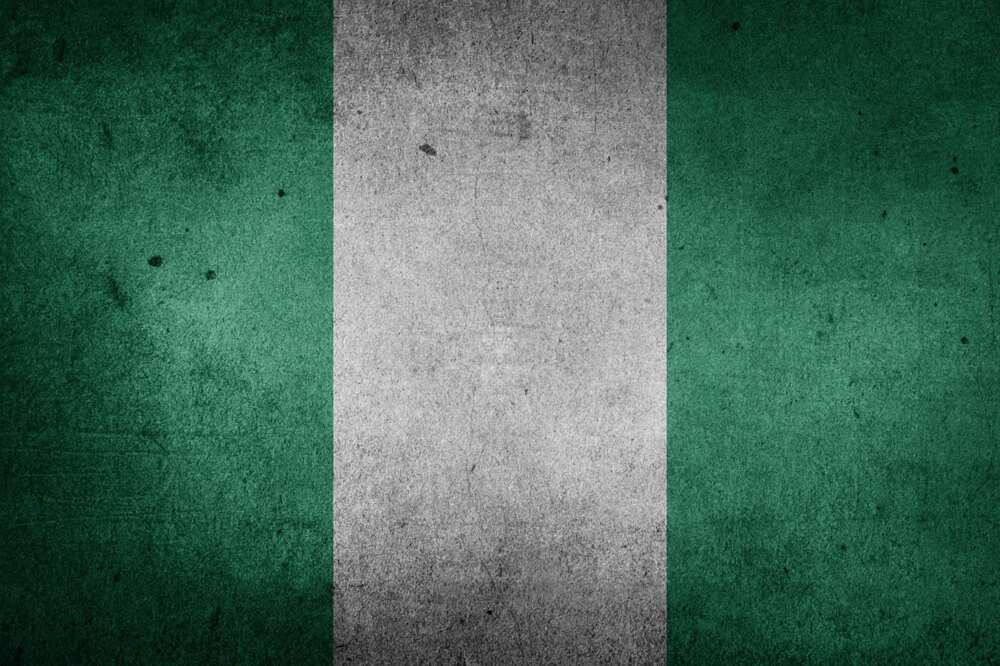
Source: Getty Images
The range of economic activities, governance, and abundance of natural resources are the primary factors determining a state's wealth in Nigeria.
Which are the richest states in Nigeria?
Which states are the richest in Nigeria? Here is a look at the 20 wealthiest Nigerian states.
20. Plateau
- Year of creation: 1976
- GDP: $5.20 billion
- Annual budget: $260 million
- Main economic activity: Tourism
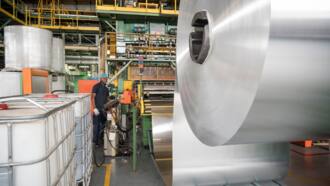
Read also
Manufacturers sack over 4,400 staff in one year despite CBN intervention of over N1trn to create jobs
PAY ATTENTION: Follow us on Instagram - get the most important news directly in your favourite app!
Plateau is considered Nigeria's tourism hub as its home to a wide range of tourist attractions, including the Kurra Falls, Kerang Highlands, Assop Falls, Wase Rock, The Museum of Traditional Nigerian Architecture, the Wildlife Safari Park, and the National Museum.
19. Borno
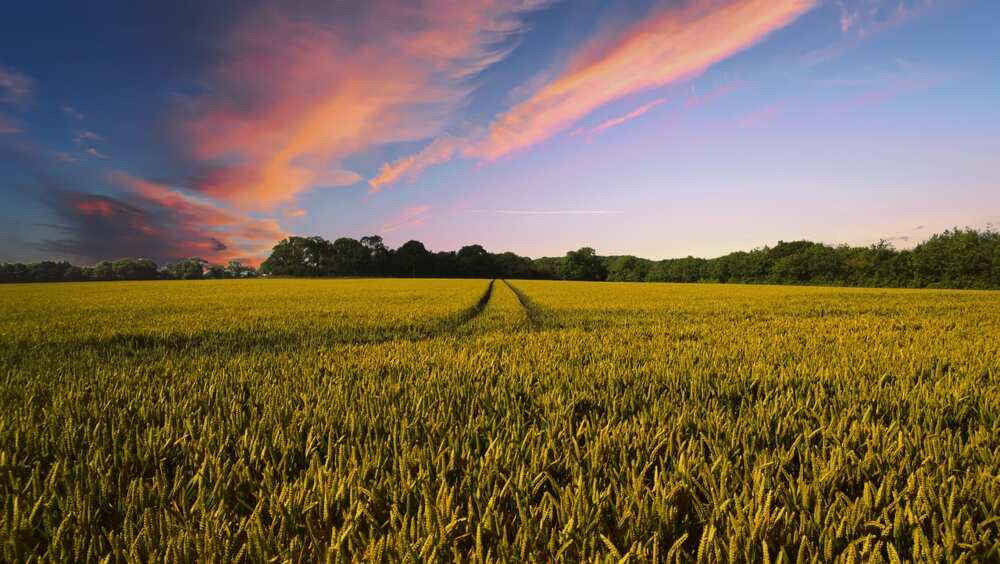
Source: UGC
- Year of creation: 1976
- GDP: $5.18 billion
- Annual budget: $414.2 million
- Main economic activity: Fishing and agriculture
Borno's economy is mainly agrarian driven with large deposits of mineral resources. Locals typically rely on crop and livestock farming, fishing, and trade. The state borders Cameroon, Chad and Niger, making it a major trading hub.
18. Niger
- Year of creation: 1976
- GDP: $6 billion
- Annual budget: $508 million
- Main economic activity: Power generation
Niger is the largest state in Nigeria, with a landmass measuring 76,363 square kilometres. Surprisingly, while Niger is the biggest state in Nigeria, it is also among the least populated ones, with a total population of slightly over 4 million inhabitants. The state is home to Kainji and Shiroro dams, making it Nigeria's power generation centre.
17. Katsina
- Year of creation: 1987
- GDP: $6.08 billion
- Annual budget: $819 million
- Main economic activity: educational institutions
Katsina is situated in Nigeria's northwest and occupies 24,192 square kilometres. The state's population is primarily comprised of the Hausa people.
Katsina is renowned for its appreciation of education and a remarkably high number of academic institutions, including the Umar Musa Yar' Adua University, Al-Qalam University, and the Federal University Dutsin-Ma.
16. Anambra
- Year of creation: 1991
- GDP: $6.76 billion
- Annual budget: $409 million
- Main economic activity: Mining
Located in the Southern region of Nigeria, Anambra is the second smallest state, stretching across a mere 4,844 square kilometres. The State is largely dominated by the Igbo people and has large deposits of minerals, crude oil, and natural gas.
15. Benue
- Year of creation: 1976
- GDP: $6.86 billion
- Annual budget: $376 million
- Main economic activity: Agriculture
Benue is among the wealthiest states in southeast Nigeria and is home to over 4.5 million people. The state is renowned for its agricultural production capacity. Its residents are mainly involved in the growing of yam, rice, cocoyam, sesame, beans, millet, cassava, sorghum, potato, maize, and soybeans.
14. Osun
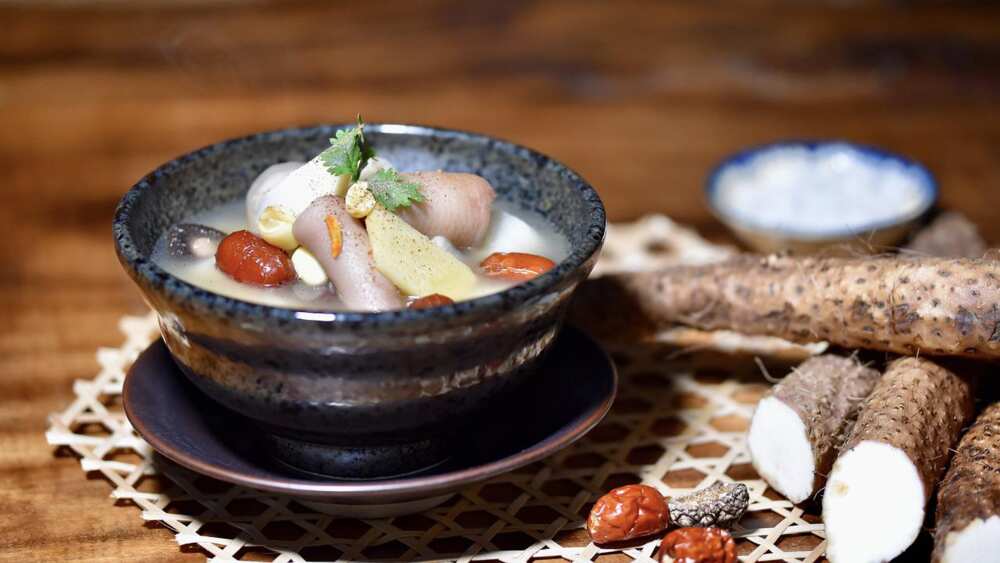
Source: UGC
- Year of creation: 1991
- GDP: $7.28 billion
- Annual budget: $313 million
- Main economic activity: Agriculture
Osun was created in 1991 from a section of Oyo state. Its economy is primarily based on agriculture, with the main crops being yams, cassava, corn, beans, millet, plantains, cacao, palm oil and kernels, and fruits.
Osun is also home to numerous industries, including brass work, woven cloth, and wood carving. In addition, Oshogbo, the state capital, has vibrant food processing, steel-rolling, and textile industries.
13. Ondo
- Year of creation: 1976
- GDP: $8.41 billion
- Annual budget: $243 million
- Main economic activity: Agriculture
Ondo is one of the states in western Nigeria. It was created in 1976 out of the former Ondo province. Agriculture is the mainstay of the economy, with the primary crops being cacao from the central part, cotton and tobacco from the north, and rubber and timber from the south and east. Additionally, palm oil and kernels are cultivated for export throughout the state.
12. Abia
- Year of creation: 1991
- GDP: $8.68 billion
- Annual budget: $354 million
- Main economic activity: Agriculture
Abia State is located in east-central Nigeria and was administratively created in 1991 from the eastern half of Imo state. Most of Abia's population is engaged in agriculture, growing yams, taro, corn, rice, cassava, and oil palm. The state's mineral resources include huge deposits of lead and zinc.
11. Cross River
- Year of creation: 1976
- GDP: $9.29 billion
- Annual budget: $665 million
- Main economic activity: Industrial wood processing
Cross River state has a significant portion of Nigeria's forest resources and supplies a sizable amount of the country's industrial timber both for export and domestic markets.
The population of Cross River State consists largely of the Ekoi and Efik people. Food crops including yams, cassava, rice, and corn are widely cultivated, with deep-sea fishing also being economically important.
10. Kaduna
- Year of creation: 1967
- GDP: $10.33 billion
- Annual budget: $672 million
- Main economic activity: Textile manufacturing
Kaduna is home to the largest textile-manufacturing industry in Nigeria, making it one of the top ten richest states in Nigeria. Additionally, the state has significant oil refining, tobacco, and cottonseed processing industries. Traditional crafts, especially cotton weaving and dyeing, leather processing, raffia weaving, and pottery designing, also retain considerable economic importance in Kaduna
9. Ogun
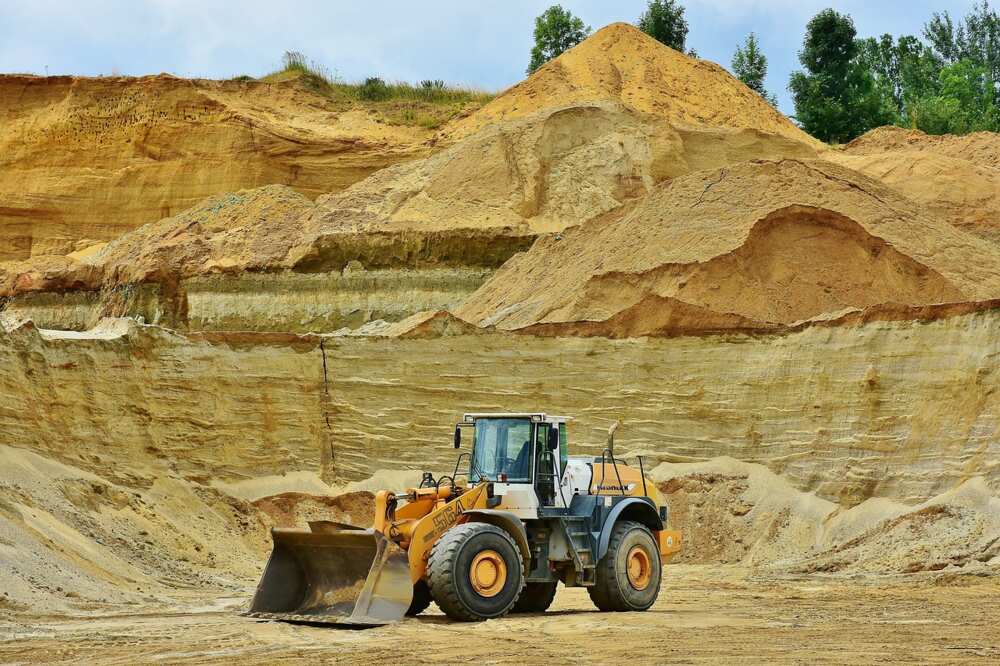
Source: UGC
- Year of creation: 1976
- GDP: $11 billion
- Annual budget: $845 million
- Main economic activity: Mining and manufacturing
Ogun was created in 1976 and is well known for the Aro granite quarries near Abeokuta, the state capital. The quarry provides building material for much of southern Nigeria. The state's natural resources include huge limestone deposits, chalk, phosphates, and clay.
Ogun's industries produce canned foods, foam, tires, rubber, paints, plastics, and aluminium products. The state's capital is an important transport hub and serves as a convergence point for roads and railways coming from Lagos and other major cities and states near Ogun.
8. Akwa Ibom
- Year of creation: 1987
- GDP: $11.09 billion
- Annual budget: $1.4 billion
- Main economic activity: Mining and agriculture
Akwa Ibom was formed in 1987 from the Cross River State. Its population consists mainly of Ibibio people, renowned for their proficiency in farming yams, rice, cowpeas, corn, cassava, oil palms and cocoa. The state's residents also rear pigs, sheep, goats, and rabbits on a large scale.
Deep-sea fishing, lignite mining, and offshore oil extraction are also essential economic activities in Akwa Ibom. The numerous economic activities in Akwa Ibom make it one of the top 10 richest states in Nigeria.
7. Edo
- Year of creation: 1991
- GDP: $11.89 billion
- Annual budget: $537 million
- Main economic activity: Agriculture
Edo state was formed in 1991 from the northern portion of Bendel state. Agriculture is the mainstay of the economy, with yams, cassava, palm, rice, and corn being the major subsistence crops. The state's main cash crops include rubber, timber, palm oil and kernels.
Besides the vibrant agricultural sector, Edo State also has vast mineral deposits, including limestone and lignite. Various industries produce pharmaceuticals, rubber, plywood, beer, sawn wood, and furniture.
6. Kano
- Year of creation: 1967
- GDP: $12.39 billion
- Annual budget: $532 million
- Main economic activity: Manufacturing
Kano State was formed in 1967 from the former Kano province. In 1991, its northeastern portion was split off to form the current Jigawa State. Kano city, the capital, is a manufacturing and processing centre for canned foods, textiles, furniture, cement, rolled steel, and light trucks.
Most of the state's inhabitants are Hausa or Fulani, but there are also Nigerians from other parts of the country, Arab traders, and Europeans
5. Imo
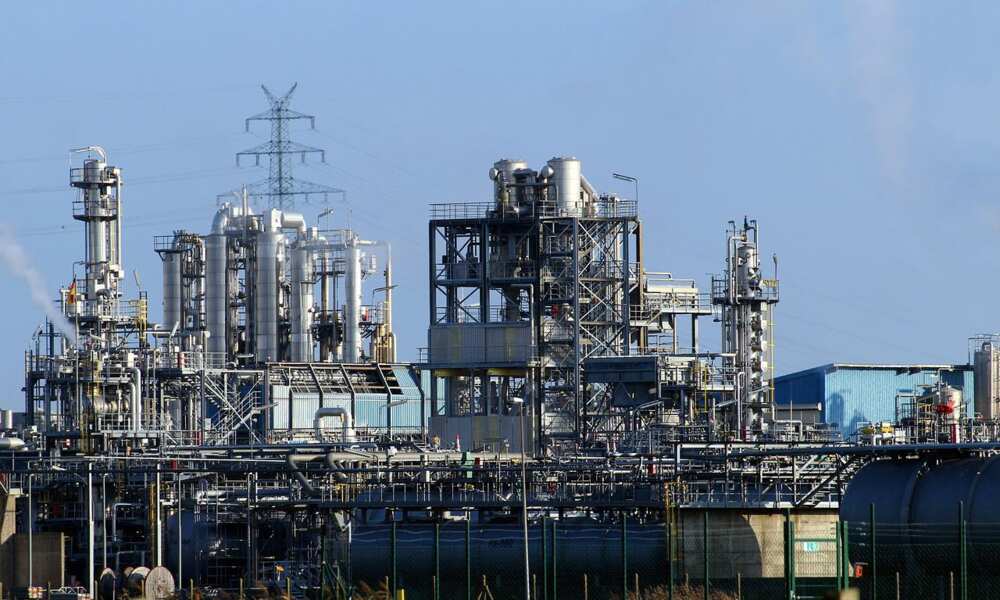
Source: UGC
- Year of creation: 1976
- GDP: $14.77 billion
- Annual budget: $917 million
- Main economic activity: Oil refinery
Imo is the wealthiest state in Southeastern Nigeria. The state's economy is fueled by vibrant infrastructural development, numerous manufacturing companies, and huge deposits of zinc, crude oil, natural gas, limestone, sand, and white clay.
Imo is currently home to several large oil companies, including Royal Dutch Shell, Agip, Chevron, and Addax Petroleum.
4. Oyo

Read also
16 Most beautiful places in Africa in 2021 you probably may not believe exist on planet earth
- Year of creation: 1991
- GDP: $16.12 billion
- Annual budget: $711 million
- Main economic activity: Agriculture
Oyo State measures 28,454 square kilometres and is among Nigeria's top states when it comes to food production. The state is home to numerous farms dealing with the farming, processing, and packaging of wide-ranging food crops, including cocoa, rice, millet, cassava, yams, and maize.
3. Delta
- Year of creation: 1991
- GDP: $16.75 billion
- Annual budget: $1.12 billion
- Main economic activity: Mining
Delta State is home to about 4 million people and 17,689 square kilometres. The state has one of the largest deposits of minerals and other natural resources such as industrial clay, silica, limestone, lignite, kaolin, and tar sand.
2. Rivers
- Year of creation: 1967
- GDP: $21.15 billion
- Annual budget: $1.13 billion
- Main economic activity: Crude oil extraction
Rivers State is situated in Southern Nigeria and is the second-richest state in the country in terms of GDP. The state is home to slightly over 5 million people. Economy-wise, Rivers State has more than 60% of Nigeria's oil reserves, making it a strategic area for the entire country's economy.
Additionally, the state has vast deposits of natural gas.
1. Lagos
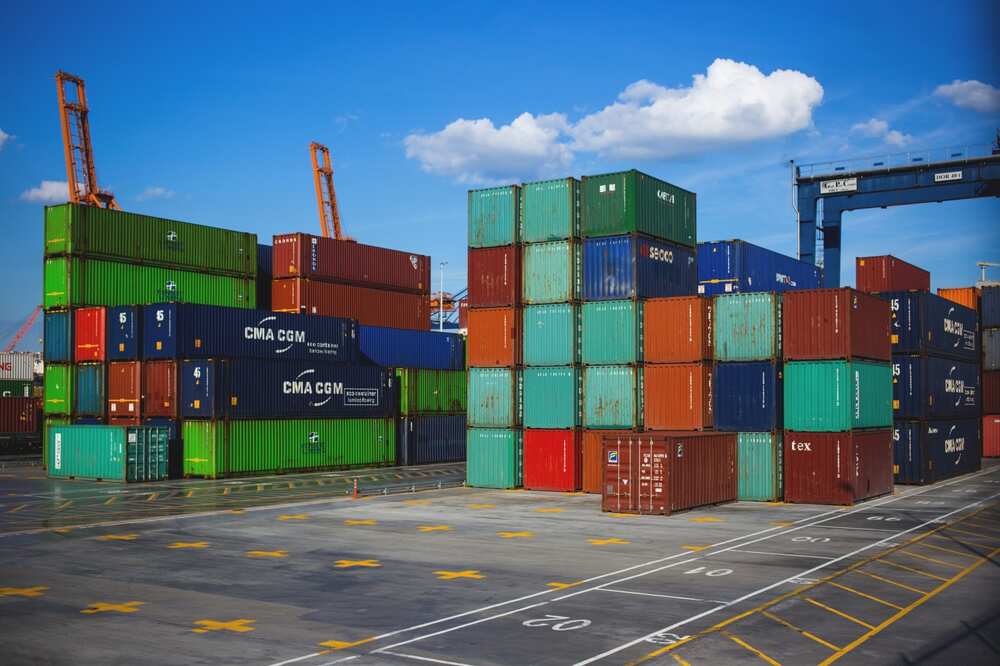
Source: UGC
- Year of creation: 1967
- GDP: $33.68 Billion
- Annual budget: $4.2 billion
- Main economic activity: Ports, oil refineries, automotive assembly, manufacturing, and processing
What is the richest state in Nigeria? the answer is Lagos, home to the Port of Lagos, one of Africa's largest and busiest ports. The port handles numerous vessels, including oil/chemical tankers, container ships, bulk carriers, and fishing vessels. The state is also among the oldest in Nigeria, having been established in 1967.
Besides the ultra-busy port, Lagos' economy is also widely supported by vibrant manufacturing, processing, and oil refining industries.
Which is the poorest state in Nigeria?
Sokoto State is widely considered the poorest state in Nigeria, with a poverty level of about 87.73%. The state has barely any investments from foreign entities or individuals. Additionally, Sokoto has numerous abandoned road projects, resulting in challenges transporting the agricultural produce grown in the region.
The top richest states in Nigeria
Here is a recap of the wealthiest Nigerian states and their respective GDPs in 2022.
- Lagos: $33.68 Billion
- Rivers: $21.15 billion
- Delta: $16.75 billion
- Oyo: $16.12 billion
- Imo: $14.77 billion
- Kano: $12.39 billion
- Edo: $11.89 billion
- Akwa Ibom: $11.09 billion
- Ogun: $11 billion
- Kaduna: $10.33 billion
- Cross River: $9.29 billion
- Abia: $8.68 billion
- Ondo: $8.41 billion
- Osun: $7.28 billion
- Benue: $6.86 billion
- Anambra: $6.76 billion
- Katsina: $6.08 billion
- Niger: $6 billion
- Borno: $5.18 billion
- Plateau: $5.20 billion
The richest states in Nigeria have reached their status by leveraging the natural resources, human capital, infrastructure, and climate conditions prevalent in their borders. These states are essential to the Nigerian economy and significantly contribute to the country's GDP.
READ ALSO: 10 ways of fighting and reducing political apathy in Nigeria
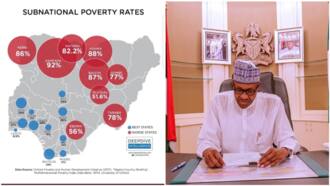
Read also
List of states with high poverty rate as Buhari promises to close gap between rich and poor (infographics)
Legit.ng recently published an article detailing the various ways governments and other institutions can use to fight political apathy in Nigeria. Political apathy is a situation whereby citizens seclude themselves from political activities and affairs in their country.
Typically, this apathy is caused by negative feelings or experiences resulting from elections and the general political space. While it may seem harmless initially, political apathy impacts a country negatively by slowing down social, political, and economic development.
Source: Legit.ng








